The US postpones the debt default deadline, creating more opportunities to reach an agreement on the debt ceiling; Russia sets conditions for peace negotiations with Ukraine; the US and South Korea conduct large-scale military exercises and concerns about the situation of civilians in conflict zones are prominent world events of the past week.
Default deadline extended, US has more opportunity to negotiate public debt ceiling
 |
| US Treasury Secretary Janet Yellen. Photo: AFP/TTXVN |
On May 26, US Treasury Secretary Janet Yellen announced that she would postpone the forecast date for the government's default from June 1 to June 5 because the US has enough reserves to last longer, giving more opportunity for negotiations on the debt ceiling.
In a letter to House Speaker Kevin McCarthy, Ms. Yellen said that if Congress does not raise the debt ceiling, the US will run out of money to pay its bills by the new deadline of June 5, as negotiators from the Democratic and Republican parties are trying to reach an agreement.
The update to the default deadline, known as “Day X,” would give negotiators more time to reach a deal. Yellen had previously said the U.S. could run out of money to make its debt payments by June 1.
For months, the official has warned that a default on U.S. debt could devastate the global economy and markets. If the U.S. were to technically default, even for just a few days, it could raise interest rates and undermine confidence in the dollar. Economists note that U.S. rivals, particularly Russia and China, are watching the impasse over the U.S. debt limit, and are comforted by the knowledge that eroding confidence in the dollar would benefit them.
She noted that the federal government needs to spend more than $130 billion in the first few days of June, including payments to veterans and those receiving Social Security and Medicare, leaving the treasury extremely low.
Raising the debt ceiling is often one way to address the issue. Republicans have raised the ceiling without preconditions three times under President Donald Trump.
Meanwhile, Mr. Patrick McHenry, one of the Republican negotiators, is confident they can meet the new deadline.
“We’re not done yet, but we’re at a stage where we can do this and we have to come to some really tough terms,” he told reporters.
For his part, President Joe Biden told reporters that he believed negotiators were very close to a deal. “Things are looking good. I’m very optimistic,” the US president said.
Russia sets conditions for peace talks with Ukraine
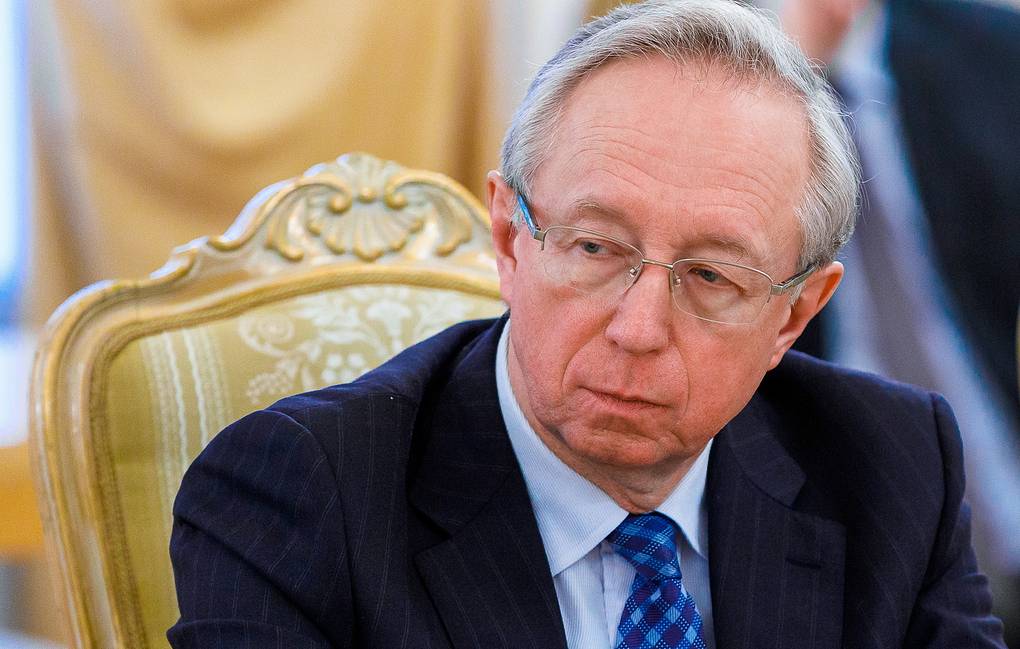 |
| Russian Deputy Foreign Minister Mikhail Galuzin. Photo: TASS |
Russian Deputy Foreign Minister Mikhail Galuzin said Ukraine needs to abandon its membership in the North Atlantic Treaty Organization (NATO) and the European Union (EU), as well as return to neutrality for the peace process to succeed.
In an interview with TASS on May 26, Deputy Minister Galuzin also noted that Russia's approach to resolving the conflict around Ukraine remains unchanged. Moscow's goals include protecting the population of Donbass, demilitarizing and denuclearizing Ukraine, as well as eliminating threats to Russia's security emanating from the territory of this neighboring country.
“We believe that a solution can only be achieved when the Ukrainian and Western armies completely cease military actions. To achieve a comprehensive, just and stable peace, Ukraine must return to the non-aligned neutrality enshrined in the 1990 declaration of state sovereignty and refuse to join NATO and the EU,” Galuzin stressed.
He added that protecting the rights of Russian speakers and ethnic minorities is an essential element of a peaceful solution.
Previously, Russia has repeatedly stated that the West's provision of new weapons to Ukraine, including fighter jets, will not fundamentally change the course of the special military operation. That will further involve the West in the conflict and bring with it many risks. Russia stressed that this requires Moscow to take certain preventive measures.
US - South Korea hold largest live-fire exercise
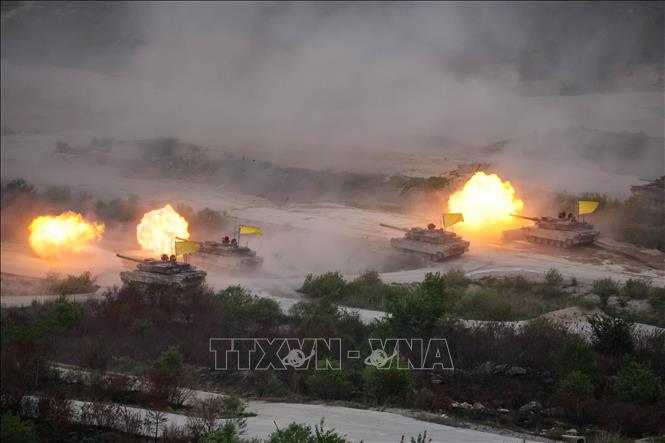 |
| South Korean K2 tanks participate in a live-fire exercise on May 25. Photo: YONHAP/VNA |
On May 25, to mark the 70th anniversary of the alliance and the 75th anniversary of the founding of the South Korean military, US and South Korean forces began live-fire exercises simulating an “all-out attack” from North Korea. The two sides described this as the largest-ever exercise, aimed at demonstrating “overwhelming” military potential in the face of threats from North Korea.
According to Yonhap news agency, the exercise will take place at the Seungjin firing range in Pocheon, 52 km northeast of Seoul, with the participation of about 2,500 soldiers from 71 military units of South Korea and the United States and about 600 military equipment. The exercises will involve fighter jets, tanks and howitzers. Washington and Seoul are expected to hold four more live-fire exercises between now and mid-June.
"The exercise demonstrated the military's capability and readiness to strongly respond to North Korea's nuclear and missile threats and an all-out attack," the South Korean Defense Ministry said, pledging to maintain "peace through overwhelming force."
South Korea and the US have conducted several live-fire drills in the past, the most recent of which was in 2017, involving more than 2,000 soldiers from 48 South Korean and US military units.
Last week, North Korean state media reported that leader Kim Jong-un had approved final preparations for the launch of the country’s first military spy satellite. Leader Kim Jong-un reaffirmed efforts to counter threats from the United States and South Korea.
Analysts say the satellite will help Pyongyang improve its surveillance capabilities, allowing it to strike targets more precisely in the event of war.
Recent commercial satellite imagery shows progress on a new launch pad at North Korea's satellite launch station, with activity at a "new level of urgency," likely in preparation for an upcoming launch.
In recent months, US and South Korean forces have conducted various exercises, including air and sea drills involving US B-1B bombers.
North Korea has repeatedly warned that the US-South Korean military exercises are destabilizing the Korean Peninsula and pushing the region toward a more dangerous phase.
World 'fails' to protect civilians from conflict
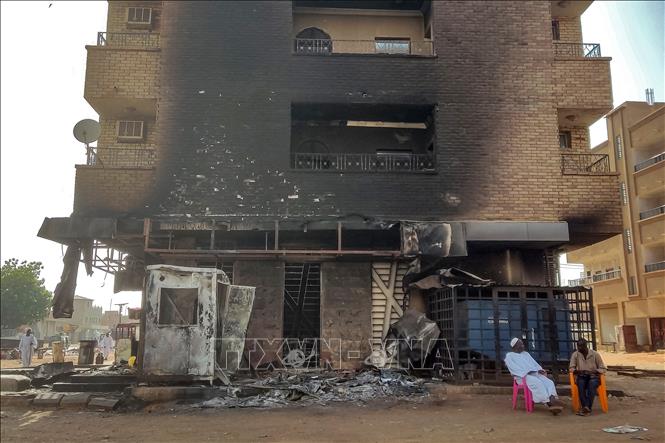 |
| A building damaged by fighting between the Sudanese army and the paramilitary Rapid Support Forces (RSF) in the capital Khartoum on May 24, 2023. Photo: AFP/TTXVN |
On May 23, United Nations (UN) Secretary-General Antonio Guterres said the world is failing to protect civilians as the number of people caught up in conflicts and humanitarian crises skyrocketed last year.
In 2022, the UN reported a 53% increase in civilian deaths compared to the previous year, with nearly 17,000 victims recorded in 12 conflicts.
Citing civilian deaths in Ukraine and Sudan, destroyed schools in Ethiopia and damage to water infrastructure in Syria, Secretary-General Guterres warned that “the world is failing to live up to its commitments to protect civilians; commitments enshrined in international humanitarian law.”
Mr Guterres said UN research in war zones showed that 94% of victims of "weapons and explosive ordnance" in densely populated areas were civilians last year, while more than 117 million people faced acute hunger largely due to war and insecurity.
In Ukraine alone, where the conflict has dragged on into its second year, the UN has recorded nearly 8,000 civilian deaths and more than 12,500 injuries, although the actual figure is likely higher.
Worldwide, the number of refugees forced to flee their homes due to conflict, violence, human rights violations and persecution has reached 100 million.
Also speaking at the UN on May 23, the president of the International Committee of the Red Cross (ICRC) told members: “As we meet, countless civilians in conflicts around the world are experiencing a living hell. At any moment, missiles could destroy homes, schools, clinics and everyone in them. In any week, they could run out of food or medicine.”
For his part, ICRC rotating president, Swiss President Alain Berset, stressed that all parties to the conflict need to comply with international humanitarian law.
Conflict is a major driver of hunger, he said. More and more people are facing severe food insecurity, most concentrated in conflict zones such as the Democratic Republic of Congo, Sudan and the Sahel, or in other contexts where violence is widespread, such as Haiti.
The UN Secretary-General affirmed: "It is time for us to fulfill our commitments to protect civilians."
According to Baotintuc.vn
Source link































































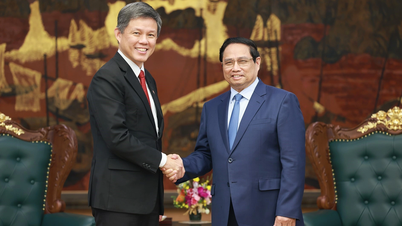




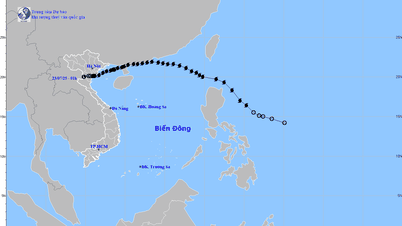

































Comment (0)